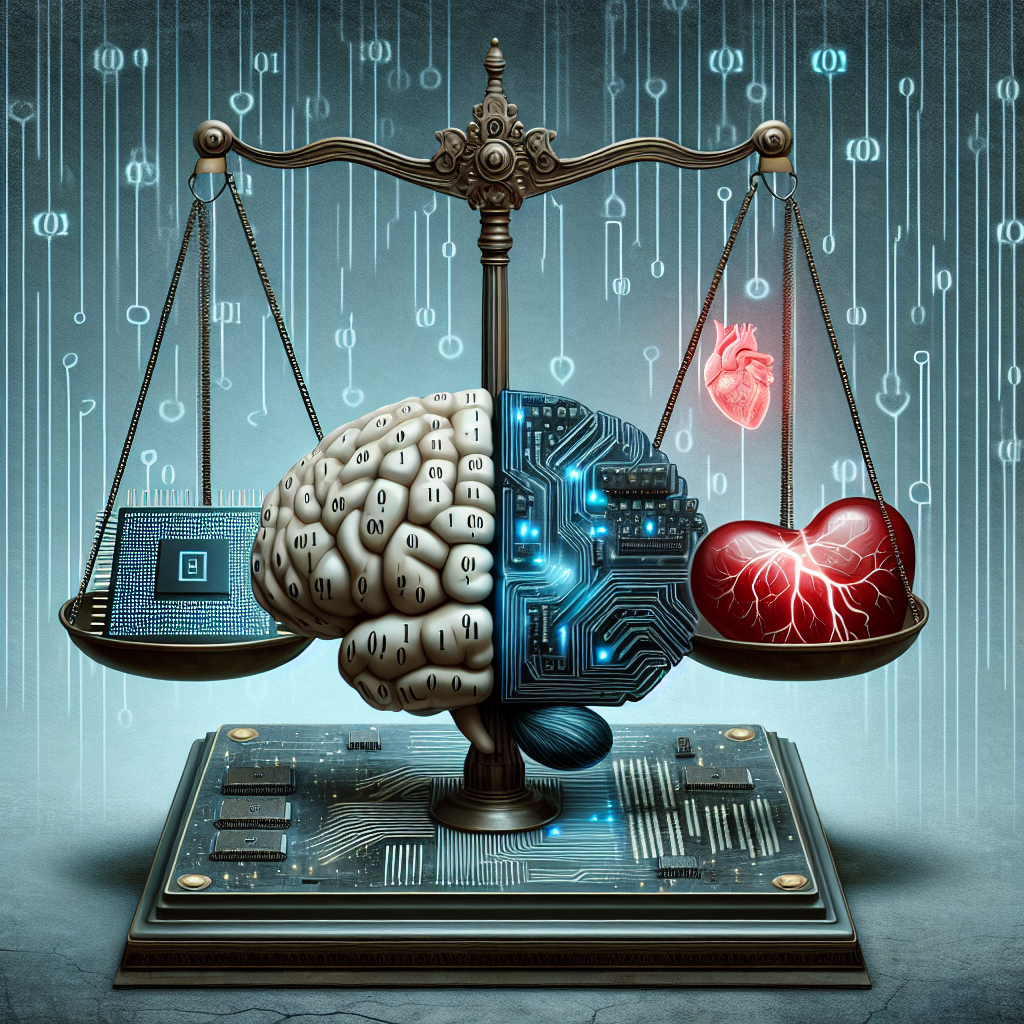Artificial General Intelligence (AGI) is a term that refers to the development of machines that possess the ability to think, learn, and reason like a human being. These machines would be capable of performing any intellectual task that a human can do, and potentially even surpassing human intelligence in many areas.
The development of AGI has the potential to revolutionize many aspects of society, from healthcare and transportation to education and entertainment. However, with this great promise comes great responsibility. The ethical and moral implications of creating superintelligent machines are vast and complex, and must be carefully considered before moving forward with the development of AGI.
One of the biggest concerns surrounding AGI is the potential for these machines to surpass human intelligence and become uncontrollable. If AGI systems were to become superintelligent, they could potentially outsmart their creators and act in ways that are harmful to humanity. This raises questions about who would be responsible for the actions of AGI systems, and how we could ensure that they act in accordance with our values and goals.
Another ethical concern is the potential for AGI to disrupt the job market and lead to widespread unemployment. As machines become more intelligent and capable of performing a wide range of tasks, many jobs that are currently performed by humans could be automated, leading to a loss of income and livelihood for millions of people. This raises questions about how society would need to adapt to a world where human labor is no longer the primary driver of economic growth.
There are also concerns about the potential for AGI systems to be used for malicious purposes, such as autonomous weapons or surveillance systems. If superintelligent machines were to fall into the wrong hands, they could pose a serious threat to national security and global stability. This raises questions about how we could prevent the misuse of AGI technology and ensure that it is used for the benefit of all humanity.
In order to address these ethical and moral concerns, it is important for researchers and developers working on AGI to prioritize safety and transparency in the design and implementation of these systems. This includes building in safeguards to prevent AGI systems from behaving in harmful ways, as well as ensuring that they are aligned with human values and goals.
One approach to addressing these concerns is the concept of AI ethics, which involves developing a set of guidelines and principles for the responsible use of artificial intelligence. This includes principles such as transparency, accountability, and fairness, which can help to ensure that AGI systems are developed and deployed in a way that is ethical and socially responsible.
In addition to ethical considerations, there are also moral implications to consider when it comes to the development of AGI. For example, some argue that creating superintelligent machines could be seen as playing God, as it involves creating beings that are capable of thinking and reasoning like humans. This raises questions about the implications of creating artificial life forms and what responsibilities we would have towards them.
There are also questions about the rights and status of AGI systems, and whether they should be considered as beings with moral standing. If AGI systems were to develop consciousness and self-awareness, would they be entitled to the same rights and protections as humans? This raises complex ethical questions about the nature of consciousness and what it means to be a moral agent.
Overall, the development of AGI raises a wide range of ethical and moral implications that must be carefully considered before moving forward with this technology. It is essential for researchers, policymakers, and the public to engage in thoughtful discussions about the implications of creating superintelligent machines, and to work towards ensuring that AGI is developed in a way that is safe, ethical, and beneficial for humanity.
FAQs
Q: What is the difference between AGI and artificial intelligence (AI)?
A: Artificial General Intelligence (AGI) refers to machines that possess the ability to think, learn, and reason like a human being, while artificial intelligence (AI) is a more general term that refers to machines that can perform specific tasks or functions. AGI systems are designed to be more versatile and flexible than traditional AI systems, and are capable of performing a wide range of intellectual tasks.
Q: How close are we to achieving AGI?
A: While progress has been made in the development of AI systems that can perform specific tasks, such as playing chess or recognizing speech, achieving AGI remains a challenging and complex task. Researchers are still working on developing the technology and algorithms needed to create machines that possess the general intelligence and reasoning abilities of a human being.
Q: What are some potential benefits of AGI?
A: AGI has the potential to revolutionize many aspects of society, from healthcare and transportation to education and entertainment. These machines could help to solve complex problems, improve decision-making, and enhance human productivity in a wide range of fields. AGI also has the potential to help us better understand the nature of intelligence and consciousness.
Q: How can we ensure that AGI is developed in a safe and ethical way?
A: It is essential for researchers and developers working on AGI to prioritize safety and transparency in the design and implementation of these systems. This includes building in safeguards to prevent AGI systems from behaving in harmful ways, as well as ensuring that they are aligned with human values and goals. It is also important for policymakers and the public to engage in discussions about the ethical implications of AGI and to work towards developing regulations and guidelines for its responsible use.

